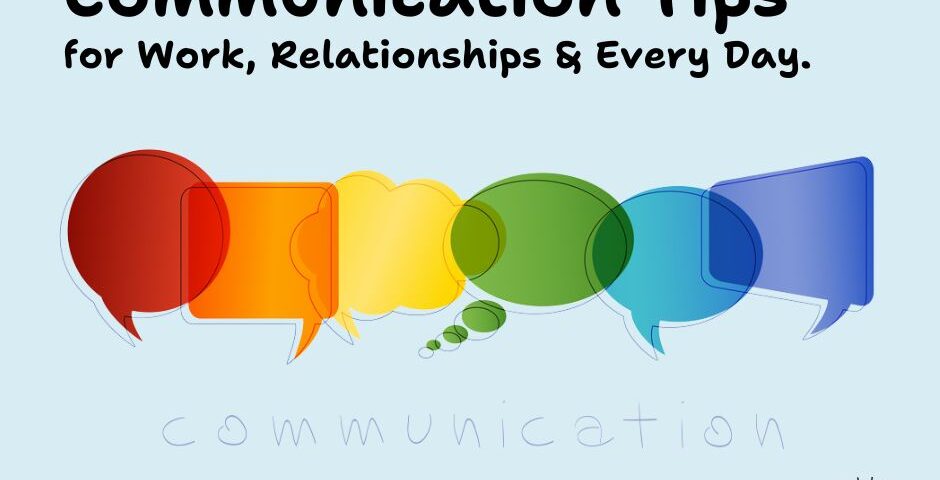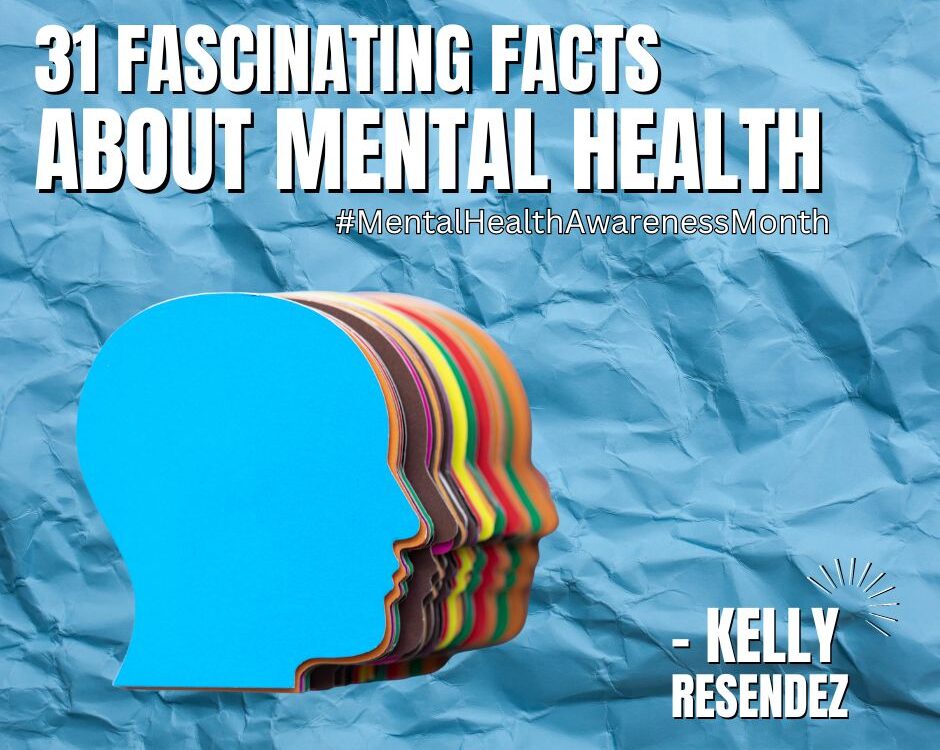
31 Fascinating Facts about Mental Health for May
May 15, 2024
Think about your typical day at work, at home with family, or just interacting with strangers. How much of your waking hours would you estimate are spent communicating in some way?
80%!
A comprehensive study found that most of us are communicating with others in some way, shape, or form at about 80% of each day.
That includes:
9% of the day writing,
16% reading,
30% speaking, and
45% listening.
(Yes, listening is a pivotal form of communication, too.)
As we know, communication is the foundation upon which we build all of our interactions and relationships, both personal and professional.
It’s the key to successful teamwork, fulfilling relationships, and effective conflict resolution.
So, since June is Effective Communication Month, I wanted to highlight some critical insights, tips, and tactics that will help you enrich and enhance your communication every day.
We can’t underestimate the importance of communication.
Before we dive into the tips, let’s explore why communication is so pivotal. According to a study by the Project Management Institute, ineffective communication is the primary cause of failure in 30% of projects for companies and in the workplace.
In personal relationships, the statistics are equally telling. A survey by The Gottman Institute found that communication style is more predictive of divorce than personality traits, showing just how crucial good communication is for relationship longevity!
So what is “good” communication, anyway?
How do we define good communication? It comes down to two simple (but not easy!) factors.
The most effective communicators clearly convey their messages while also actively listen to the other person at the same time. They are willing to accept input – both verbal and non-verbal – in real time while also expressing their thoughts and opinions in a collaborative way.
Regardless of the communication style, effective communication involves a genuine connection with others. This means the most powerful skill you can leverage is understanding and being in sync with your audience (and a whole lot of that involves listening!).
But achieving all of that can take some practice.
So, I’ve prepared my top 3 communication tips for work, 3 for relationships, and 3 for every day.
Improving Communication at Work
- Practice Active Listening:
Active listening involves fully concentrating, understanding, responding, and then remembering what is being said. This skill can transform your interactions at work. Encourage feedback, ask open-ended questions, and summarize what you’ve heard to confirm understanding. This not only improves the information relay but also builds trust among team members.
2. Clarity and Conciseness:
Be clear and concise in your communications. Avoid jargon and complex language that might confuse the receiver. A study by Joseph Kimble on legal writing showed that clearer, plainer language improved understanding and compliance, a principle that can be applied in every communication effort.
Another great practice I find invaluable is setting a time limit for each important communication at work, fostering clear expectations, and improving the directness of exchanges!
3. Recap Important Details:
A whole lot of nonverbal and interpersonal cues can be lost over text, email, and social media. So, ensure understanding by recapping the key points after each exchange or conversation. A three-bullet point summary in an email is highly effective for both parties to come together towards a shared conversation!
Enhancing Communication in Relationships
- Understand Communication Styles:
Your spouse or partner may want the exact same thing but have highly different communication styles. Some express themselves openly, while others are more reserved. Understanding these styles can greatly improve interpersonal interactions.
According to Deborah Tannen, a professor of linguistics, recognizing whether your partner is a “talker” or a “non-talker” can help in adjusting expectations and interactions.
To read a life-changing book that will enhance your relationship, check out The 5 Love Languages by Gary Chapman!
2. Express Needs Clearly:
Be ultra-clear and direct about your needs and expectations. Don’t assume your partner knows them already or can fill in the blanks on any other information. The Journal of Marriage and Family published a study showing that couples who clearly express their needs are less likely to experience conflicts.
3. Practice Empathy:
Empathy involves understanding and sharing the feelings of another. By empathizing, you can connect more deeply and navigate through conflicts more effectively. This does not mean agreeing with the other person’s perspective every time but acknowledging their feelings as valid. Amazingly, most people just need their feelings validated, not agreed with!
Everyday Communication Tips
- Mind Your Non-Verbal Cues:
Non-verbal communication—such as facial expressions, gestures, and posture—plays a massive role in how our messages are received. Albert Mehrabian’s research indicates that 93% of communication effectiveness is determined by nonverbal cues. So, make sure your body language is consistent with your words.
2. Feedback is Key:
Constructive feedback, whether giving or receiving, is a cornerstone of effective communication. Make it a habit to ask for feedback on your communication style and efforts. This not only helps in personal growth but also strengthens your relationships by showing your openness to improvement. Most people literally never do this!
3. Adaptability:
Know your audience, environment, and context. Being adaptable in your communication style can greatly improve how you interact with others. This involves adjusting your style according to the situation and the person or group you’re communicating with.
Wrapping It Up
The tips provided here are just starting points. Effective communication is a journey, not a destination, and it requires continuous effort and learning.
Remember, the goal of communication should always be a deeper understanding that brings people together for an authentic connection. So, by practicing and improving our communication skills, we make our work environments more efficient, our relationships more robust, and our daily interactions more fulfilling.
I encourage you all to apply these tips and see the positive changes unfold in your interactions. Let’s communicate better, not just in June but all year round!
P.S. Don’t forget to focus on how you talk to yourself, too! In our next blog we’ll dig into self-talk.



